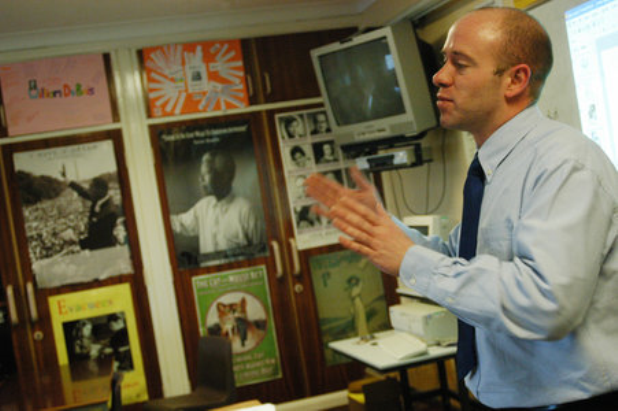Many of you will have read or heard about the Government’s White Paper: Educational Excellence Everywhere, published last week, announcing the transformation of England’s schools. I thought it would be helpful to clarify what it could mean for inspection.

Removal of the separate teaching, learning and assessment judgement
The paper proposes that Ofsted removes the specific judgement on the quality of teaching, learning and assessment from our inspections of schools. As the White Paper sets out, Ofsted will, of course, consult on this proposed change. However, because we now operate under a common inspection framework, the consultation will cover the impact of the proposal on early years, further education and skills, as well as school inspections. We think the removal of the grade could be helpful, as it would allow us to reiterate the message that Ofsted does not have a preferred style of teaching and would support our work on #OfstedMyths.
It is important to note that this proposal would not signal an end to classroom visits by inspectors. These serve a number of purposes and help inspectors develop their overall evaluation of the school. They provide an opportunity for inspectors to talk to teachers and pupils about their work and experiences in school, and gather information about the effectiveness of relevant school policies, including for behaviour. That said, it is really important for us to have a consultation to canvas views about how this might work and the impact it would have. The date of the consultation is yet to be determined, but it will be sometime in the new academic year. As ever, we will ensure that everyone with an interest is given the chance to contribute their views. I look forward to hearing what people have to say.
When we introduced the common inspection framework in September 2015, I promised we wouldn’t change our school inspection handbook for a couple of years, unless legislation required us to make changes. You will be pleased to hear that we are not planning to make any significant changes at all for the academic year of 2016/17.
Improvement periods for new heads of challenging schools
Another of the announcements in the Department for Education's White Paper is to give new leaders of challenging schools ‘inspection breaks’.
New headteachers in schools judged to require improvement can already ask us to take certain factors into consideration when deciding the timing of their next inspection. So we welcome the White Paper’s proposal that it will become established policy to carry out a re-inspection around 30 months after the previous inspection when a new head takes on a school that requires improvement. This will give them more time and space to put in place the required steps for improvement.
The White Paper also proposes similar arrangements for existing academies that are taken over by a new sponsor in order to drive improvement. Under these circumstances, the academy would not normally face inspection until its third year of operation, in line with the current policy for new schools.
We hope that these ‘inspection breaks’ encourage leaders to take on the challenge of working in schools where they are most needed.
Raising standards through inspection
The White Paper makes clear that inspection remains an important part of the accountability system. Ofsted believes strongly that as the school system develops, so should inspection. So we look forward to continuing our work with the Government and listening to the profession to alleviate unnecessary burdens on school leaders and classroom teachers. However, we will never decrease the rigour of our inspections as we champion the rights of every child to a good education.
3 comments
Comment by Derek Kitchin posted on
Some seemingly, very sensible suggestions, proposals and in the case of 'breaks' for RI Schools with new Headteachers - an excellent way forward.
The consultation will be very important and hopefully research and empirical data on the value or otherwise of classroom observation will be incorporated unpeoples responses and submissions.
As a serving Headteacher and serving Ofsted Inspector - I have to 'flip' roles and sometimes thinking and analytical processes ... however- much of the above meets with the approval of both of my 'talking heads' ... as is, what is clear to me, a different, improved, Ofsted approach.
Comment by Jackie Barnes posted on
I do believe that education is not as it was when I was at school, the first downfall came when comprehensive schools became the mode, and no grammar schools were readily available, it does not leave much to attain to.My school was only a secondary modern high school but we were taught ,not just the cuuriculum but the surrounding subjects, just one example mortgagaes, house design interior and exterior which not only gave us a broader outlook on life but also assisted the acamically challenged students, incidentally this was in Home economics known I understand as FOOD technology now, that was included also, however as was cooking.this I believe is ju. Of course inspections are important just as exams are it is all a way of monitoring but common sense has to come into play not just facts and data or worse box ticking exercises, thats just encouraging laziness, at work one example where education is falling down.
Comment by P James posted on
As long as it is also linked to championing the rights of the conditions of teachers to provide good education to every child. It is important to provide good conditions and tools for teachers to do their jobs effectively